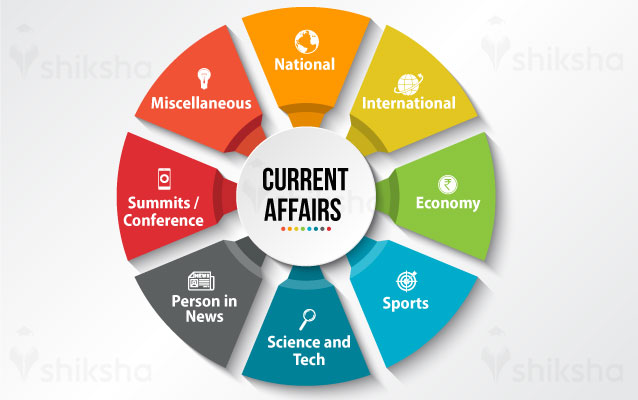Preparing for current affairs is a crucial part of the UPSC
(Union Public Service Commission) exam. It is essential for aspirants to have a
good understanding of current events, as it holds significant weightage in the
exam. While there is no definitive formula for preparing for this section,
candidates can follow some effective strategies to excel in current affairs.
Comprehensive Preparation Strategy:
To prepare for current
affairs, candidates should adopt a comprehensive strategy. Utilising trustworthy
information sources like newspapers, periodicals, and government publications
is necessary for this. It's also crucial to prepare for the variety of
questions that could appear on the exam.
Read Major Newspapers:
Reading major newspapers is crucial
for staying updated with current affairs. Candidates should make a habit of
reading newspapers regularly and make notes of important news relevant to the
UPSC exam. The Hindu is highly recommended for its excellent editorials and
comprehensive coverage of various topics.
Choose the Best Newspaper:
It is important to choose a newspaper that focuses on relevant news and avoids unnecessary social gossip. By selecting one newspaper, candidates can save time and have a more focused preparation.
Utilize Magazines:
In addition to newspapers, magazines can
be a valuable resource for current affairs preparation. Candidates should
choose a few magazines with a proven track record and excellent analysis. Some
recommended magazines for UPSC current affairs are Yojana Magazine, Science
Reporter, Kurukshetra Magazine, and Economic & Political Weekly.
Government Reports:
Going through important government
reports like the Economic Survey, the Budget, and the India Yearbook can
provide insights into the government's policies and initiatives. This will help
candidates stay updated on important developments.
Focus on Important Events:
Aspirants should prioritize
important events and issues that have a direct impact on the country's
governance, economy, and society. They should also keep themselves informed
about major global developments and their implications for India.
Note-Making:
Taking notes on the analysis of various topics
is crucial for effective preparation. These notes will be beneficial during the
advanced stages of UPSC preparation and closer to the exam. Organizing and
revising these notes regularly will help in retaining the information.
Consistent Revision:
Consistent revision is vital to retain
the vast amount of information required for the UPSC exam. Candidates should
revise the topics they have covered regularly. This will help in connecting
different topics and expanding their knowledge base. Watching current affairs
videos can also be helpful.
Limit Sources:
While preparing for current affairs, it is important not to overwhelm oneself with too many sources. Following a limited number of reliable sources, as mentioned earlier, will provide enough information for preparation and prevent confusion.
Bottomline
In addition to these tips, candidates should focus on
specific areas where questions are commonly asked. Some important areas to
cover include national issues, science and technology, states, social schemes, the Indian economy, important summits and conferences, international awards and
reports, environment and ecology, government schemes, Indian polity, social
issues, and the Indian judiciary.
To prepare effectively, candidates can refer to various
resources such as the India Year Book, Economic Survey, Mathrubhumi Yearbook,
Arihant's Current Affairs Topics, newspapers like The Hindu and Indian Express,
Yojana Magazine, Kurukshetra Magazine, Pratiyogita Darpan Magazine, and
Manorama Yearbook. Regularly reading and analyzing current affairs from these
sources will help candidates stay updated and gain an edge in the UPSC exam.
By following these strategies and utilizing the recommended
resources, candidates can prepare current affairs effectively for the UPSC exam
and increase their chances of success.

